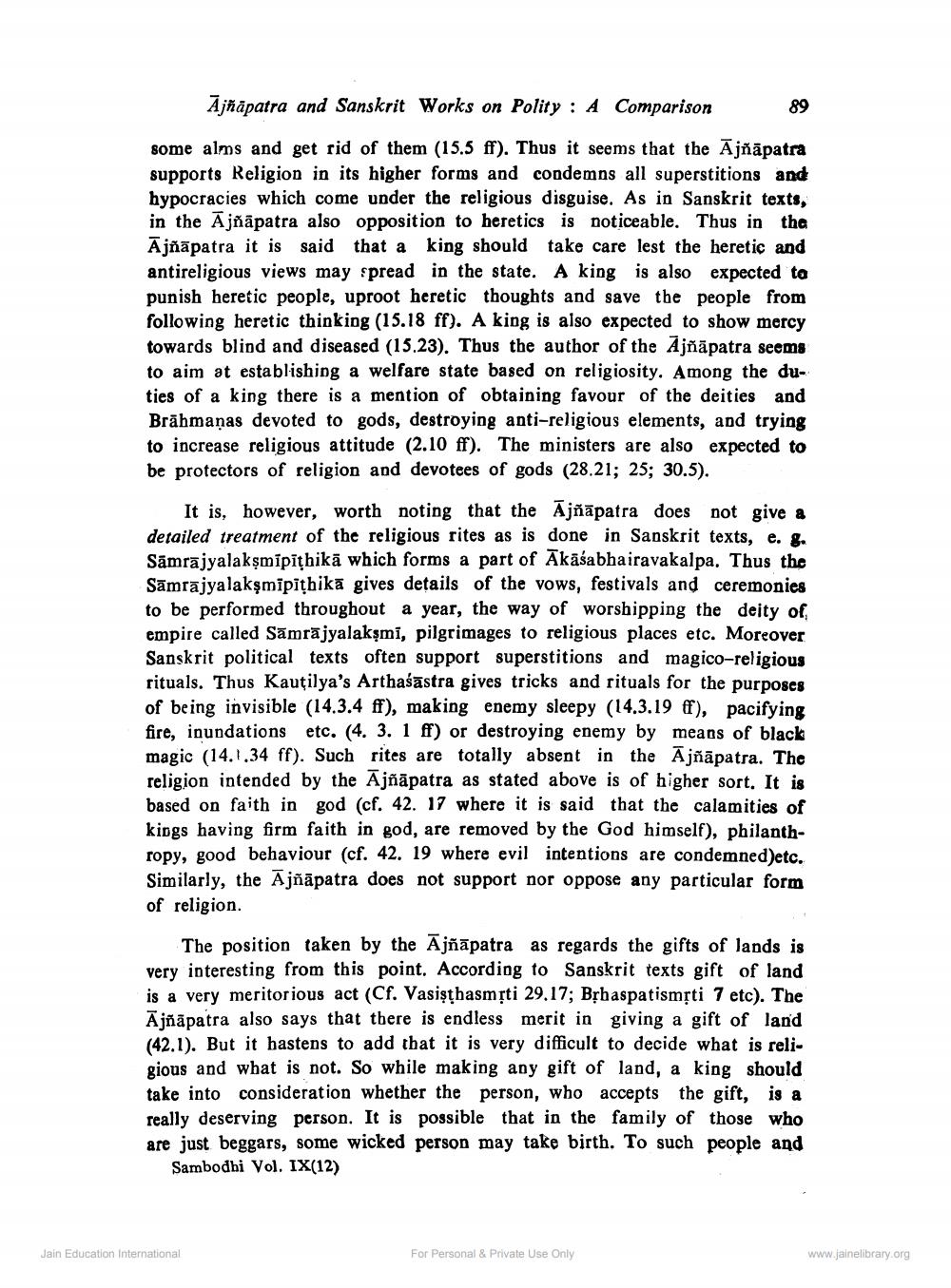________________
Ājñāpatra and Sanskrit Works on Polity : A Comparison
89
some alms and get rid of them (15.5 ff). Thus it seems that the Ājñāpatra supports Religion in its higher forms and condemns all superstitions and hypocracies which come under the religious disguise. As in Sanskrit texts, in the Ajñāpatra also opposition to heretics is noticeable. Thus in the Ājñāpatra it is said that a king should take care lest the heretic and antireligious views may spread in the state. A king is also expected to punish heretic people, uproot heretic thoughts and save the people from following heretic thinking (15.18 ff). A king is also expected to show mercy towards blind and diseased (15.23). Thus the author of the Ajñāpatra seems to aim at establishing a welfare state based on religiosity. Among the duties of a king there is a mention of obtaining favour of the deities and Brāhmaṇas devoted to gods, destroying anti-religious elements, and trying to increase religious attitude (2.10 ff). The ministers are also expected to be protectors of religion and devotees of gods (28.21; 25; 30.5).
It is, however, worth noting that the Ajñāpatra does not give a detailed treatment of the religious rites as is done in Sanskrit texts, e... Samrajyalaksmīpīthikā which forms a part of Akāśabhairavakalpa. Thus the Sāmrajyalaksmīpīthikā gives details of the vows, festivals and ceremonies to be performed throughout a year, the way of worshipping the deity of empire called Sāmrājyalakşmi, pilgrimages to religious places etc. Moreover Sanskrit political texts often support superstitions and magico-religious rituals. Thus Kautilya's Arthaśāstra gives tricks and rituals for the purposes of being invisible (14.3.4 ff), making enemy sleepy (14.3.19 ff), pacifying fire, inundations etc. (4. 3. 1 ff) or destroying enemy by means of black magic (14.1.34 ff). Such rites are totally absent in the Ājñāpatra. The religion intended by the Ajñāpatra as stated above is of higher sort. It is based on faith in god (cf. 42. 17 where it is said that the calamities of kings having firm faith in god, are removed by the God himself), philanthropy, good behaviour (cf. 42. 19 where evil intentions are condemned)etc. Similarly, the Ājñāpatra does not support nor oppose any particular form of religion.
The position taken by the Ājñāpatra as regards the gifts of lands is very interesting from this point. According to Sanskrit texts gift of land is a very meritorious act (Cf. Vasişthasmsti 29.17; Bịhaspatismộti 7 etc). The Ājñāpatra also says that there is endless merit in giving a gift of land (42.1). But it hastens to add that it is very difficult to decide what is religious and what is not. So while making any gift of land, a king should take into consideration whether the person, who accepts the gift, is a really deserving person. It is possible that in the family of those who are just beggars, some wicked person may take birth. To such people and
Sambodhi Vol. IX(12)
Jain Education International
For Personal & Private Use Only
www.jainelibrary.org




